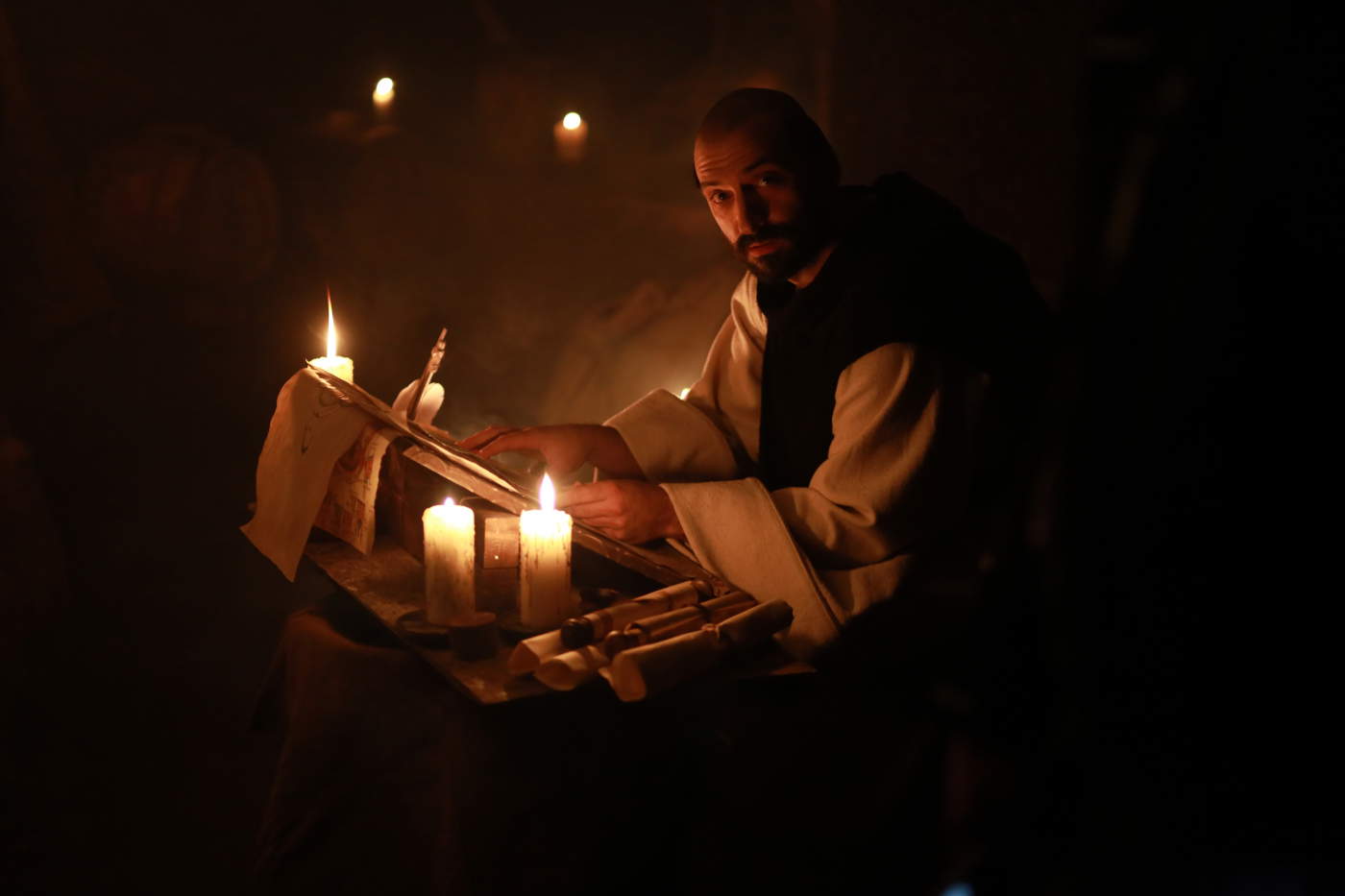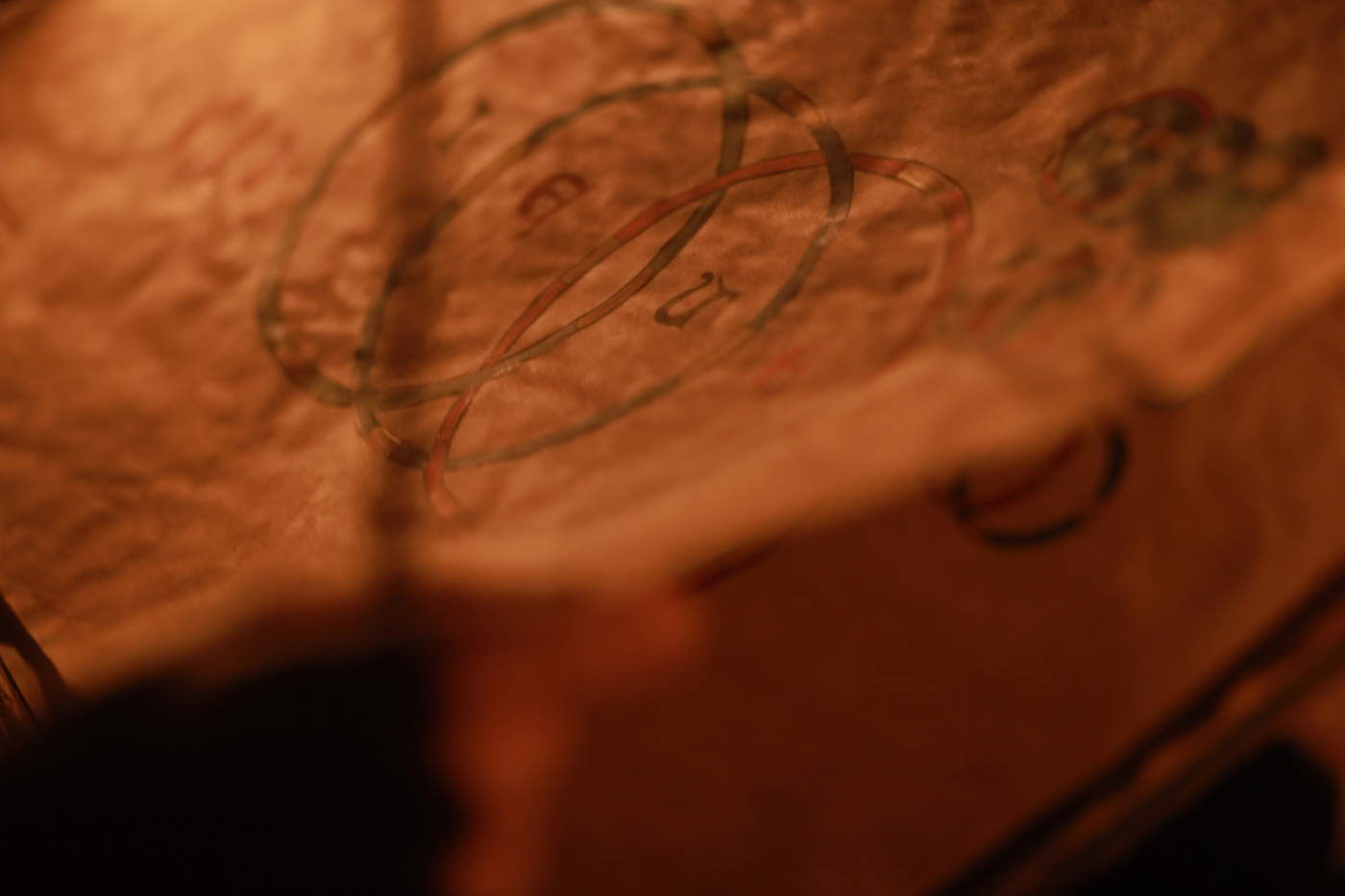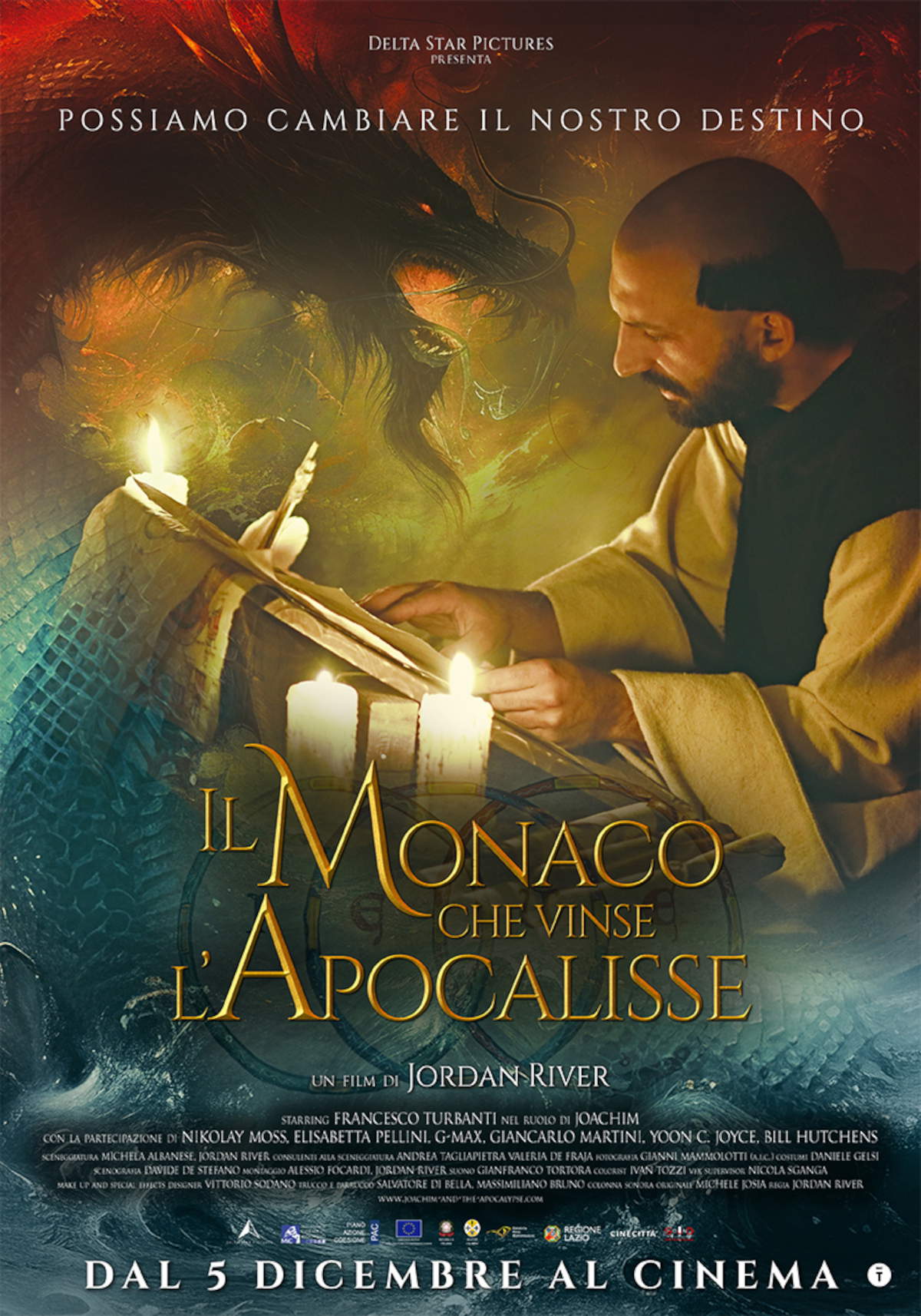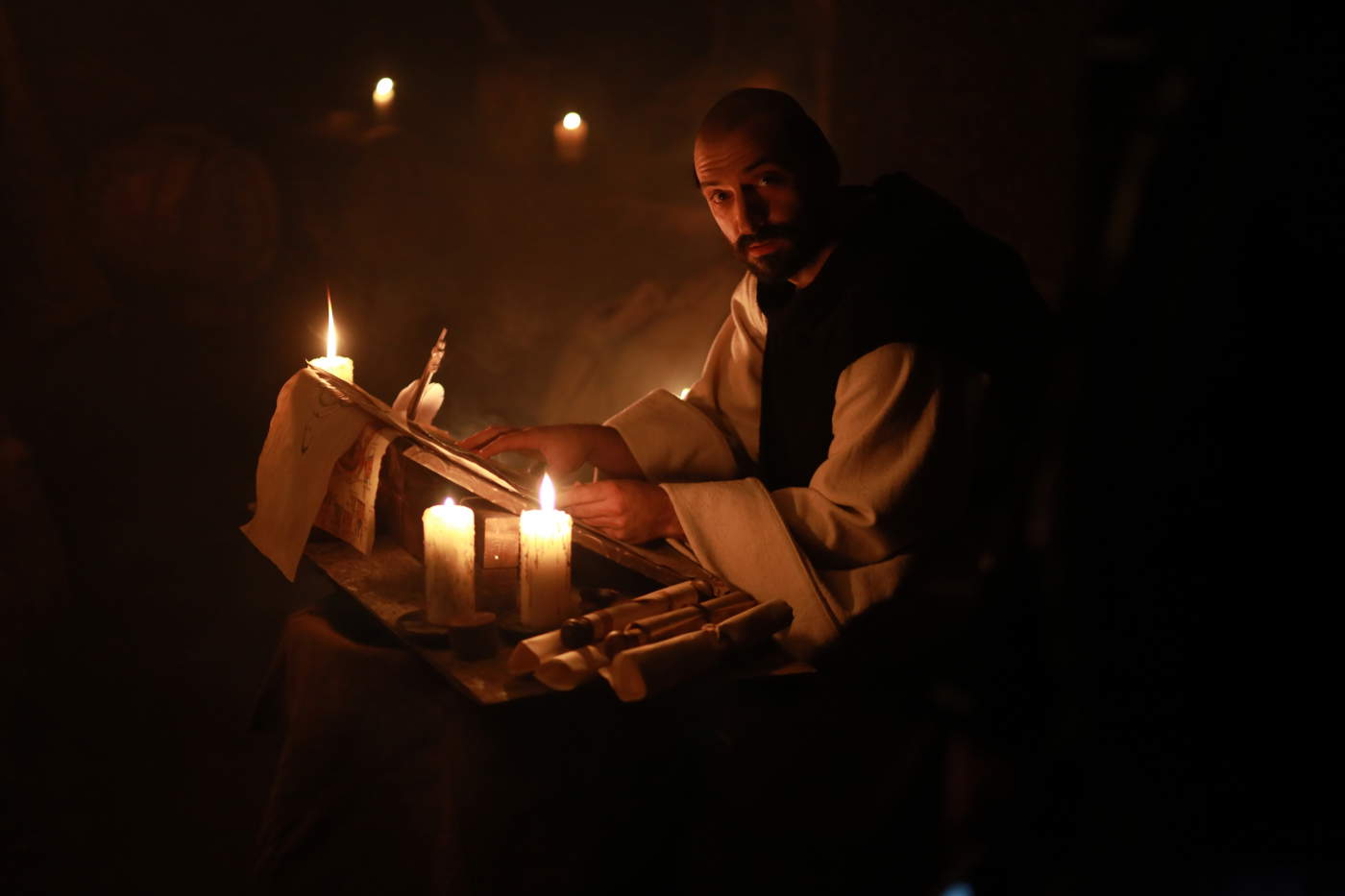Coming out on Dec. 5 in Italian cinemas is The Monk Who Conquered the Apocalypse, the film directed by Jordan River, produced and distributed by Delta Star Pictures with the support of the Ministry of Culture, Calabria Film Commission Foundation, Lazio Region and with the support of numerous local and national authorities, dedicated to the figure of Joachim Abbatis (Joachim da Fiore), a monk and exegete who lived in the 12th century. The film aims to present itself as a work that celebrates art aimed at elevating the spirit.
Appreciated already in life and after death as a prophet, Dante Alighieri included Joachim Abbatis in his Divine Comedy, calling him “endowed with a prophetic spirit.” From recent discoveries, it seems that Dante was inspired by Joachim of Fiore in writing his Three Kingdoms poem. In the dedicated film, virtual sets, digital visual effects and innovative photogrammetry techniques bring Dante’s three worlds to life.
Joachim, known not only for his dealings with rulers but also with pontiffs, was consulted for his prophetic revelations. As many as three popes asked him to write on Revelation. His influence also extended to international thinkers and artists such as Montaigne, Hegel, Joyce and even Michelangelo, who was inspired by his figurative thinking for the Last Judgment. Although Dante had “canonized” him centuries before the official Church, placing him in Paradise (Canto XII, vv. 139-141), his reforming ideas often remained on the margins and almost hidden for more than 800 years, sometimes obscured by accusations of alleged heresy. Upon his death, anonymous writings were also circulated to try to distort his thinking. The film also addresses this aspect, paying tribute to a figure who profoundly influenced Italian culture. “...Joachim, who, even though he wrote in Latin, is the first Italian thinker, that is, he inaugurates the tradition of Italian culture and thought that goes in that direction, and which will later have different translations, with Giambattista Vico, with Benedetto Croce, etc.,” writes philosopher Andrea Tagliapietra, who collaborated as a consultant on the film’s screenplay.


For eight centuries, Joachim remained a “frontier” figure, appreciated by intellectuals and even nonbelievers for his vision of a more spiritual and less materialistic Church. An unexpected turning point came on June 27, 2024, when Pope Francis, in his message for the World Day of Creation, cited Joachim of Fiore, recognizing his “ideal of a new spirit.”
The figural spiritual thought of Joachim, called a “pictorial thinker,” was based on the innovative idea of expressing religious thought through images and drawings, to make the message accessible to all, even those who could not read and write. The Liber Figurarum (Book of Figures), created in the 12th century, is one of his most outstanding works: a rare medieval illuminated codex considered the most important collection of figural and symbolic spiritual thought of the Middle Ages. Only three well-preserved specimens are known: the Dresden codex, the Reggio Emilia codex and the oldest, preserved in Oxford.
Dante, too, about a century later, drew inspiration from the Abbot Florense. In Canto XXXIII of Paradise, he described Gioacchino da Fiore’s table with Trinitarian circles, writing, “In the deep and clear subsistence/ of the high Light seemed to me three rounds/ of three colors and of one content;/ and one from the other, as iri from iri,/ seemed reflexed, and the third seemed fire,/ that quinci e quindi igualmente si spiri.”
The Liber Figurarum is a masterpiece of spiritual pictorial art, with illustrated themes such as the seven-headed Dragon and the Tree of Life. For Joachim, nature and the environment were essential tools for dialogue with the divine.
The film, which will be released throughout Italy on December 5, the day of World Soil Day established by the United Nations, aims to invite reflection on climate change and the future of humanity.
Link to trailer: https://www.youtube.com/watch?v=3u5tlukj9ps

 |
| Coming to theaters is the film dedicated to Joachim of Fiore, the monk who inspired Dante and Michelangelo |
Warning: the translation into English of the original Italian article was created using automatic tools. We undertake to review all articles, but we do not guarantee the total absence of inaccuracies in the translation due to the program. You can find the original by clicking on the ITA button. If you find any mistake,please contact us.